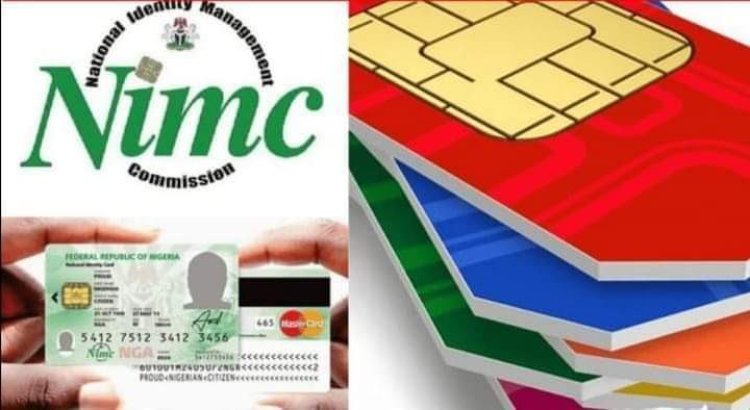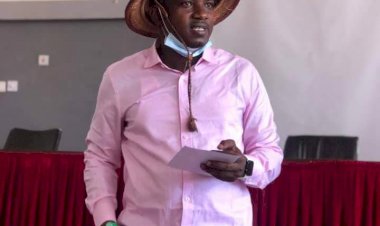NIN-SIM Deadline: 11m Nigerians Know Fate Next Week

As the deadline set by the federal government for Nigerians and legal residents to link their National Identity Number (NIN) with the Subscriber Identity Module (SIM) expires today (December 31), the fate of over 11 million subscribers yet to integrate their NIN to SIM appears uncertain as the federal government will decide their fate in first week of January 2022.
The director of public affairs of the Nigerian Communications Commission (NCC, Dr Ikechukwu Adinde, said this to LEADERSHIP in an exclusive chart in Abuja. He said, “A decision has not been taken but I am sure that in the coming week we will communicate with the media, the position will be made known on January 1, 2022.”
He gave no further details on the matter but there are palpable apprehension that many Nigerians and legal residents might have their mobile phone lines disconnected as the government has been very generous in extending the deadline which has been done for about eight times now since December 2020, when it was announced that the NIN-SIM linkage exercise would take place.
However, the government may have run out of patience with Nigerians who are yet to link their NIN to SIM and may not extend the deadline, except where there is absolute necessity to do so.
President of Association of Telecommunications Companies of Nigeria (ATCON) Ikechwukwu Nnamani in a chart with LEADERSHIP yesterday, acknowledged the fact that the government has done well in capturing 70 million people in the NIMC database.
He said, “First it is important to commend the effort of the team at NIMC for the progress so far. It is worth noting that a significant number of the reported 70m Nigerians captured by NIMC was done over the last two years despite the challenges posed by the COVID-19 Pandemic.
“With respect to if the deadline will be extended or not, the relevant Government units will review the current status and make that determination. If they feel sufficient progress has been made then it may not be extended otherwise they will extend and give more opportunities to Nigerians to still register.”
NIMC Decries Inability of NIS To Verify NINs Of Passport Applicants
There was an extension for subscribers with NIN from 30th December, 2020 to 19th January, 2021 and Six (6) weeks extension for subscribers without NIN from 30th December, 2020 to 9th February, 2021.
The government later extended the deadline to April 6, 2021. It then approved the extension of the deadline for NIN-SIM data verification to the 30th of June, 2021 and subsequently shifted the deadline to July 26.
The Federal Government later extended the deadline for NIN-SIM data verification to 31st of October, 2021 before it approved the deadline that will end on December 31, 2021.
The NCC had in an earlier statement noted that “the extension would create an enabling environment for the registration of Nigerians in remote areas, the Diaspora, schools, hospitals, and places of worship, as well as foreigners, diplomatic missions, and those in other previously unreachable areas, and would increase enrolment in countries with a significant number of Nigerians.”
However, Nigerians wait with much anxiety for the government decision in January.
In October, the NCC announced that over 180 million telephone lines are now linked with NIN, while the National Identity Management Commission (NIMC) has captured over 70 million Nigerians on the NIN database as of December 2021 according to the Director General of the NIMC, Aziz Aliyu.
According to records there are about 191 million active lines out of about 230 million connected lines.
Although 70 million Nigerians have been captured by NIMC in their National Identity Database (NIDB) about 134 million other Nigerians are yet to be captured in the Database. This number of Nigerians and legal residents might be affected if the government does not extend the deadline once again.
Sections 27 and 29 of the National Identity Management Commission Act 2007 provides for the mandatory use of National Identification Number for accessing several government services.
This is similar to the use of Social Security Number and National Insurance Number for accessing services in the United States of America and the United Kingdom respectively.


















































